
TEACHING
SOLUTIONS FOR EDUCATION

Thanks to their modular nature, imperix power modules are ideally suited for the teaching of power electronics. They indeed possess all the features – ranging from ease-of-use to robustness – to be safely put in the hands of students.
Besides, our digital controllers are easily programmable either with conventional C/C++ code, or using Simulink/PLECS.
Imperix products offer a very flexible way to conduct laboratories or students projects at the graduate or undergraduate level.
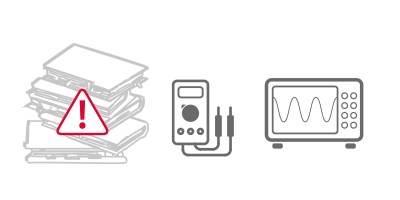
Active learning instead of teaching
Enable students to discover things by themselves and confront their theoretical knowledge to the real world operation early. Iterations with modeling or simulation studies are also possible.
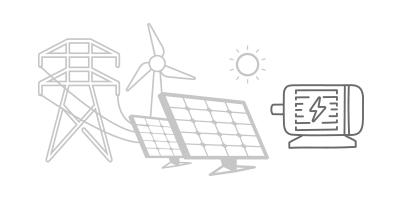
Real-world challenges
Force students to face system-level issues such as start-up or shutdown procedures, protection or cooling. Power electronics always require to process some energy and not only data!
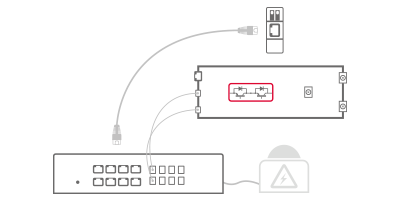
Unified equipment
Use (or reuse) the same equipment for both teaching and research. Imperix products cover a broad range of ratings and applications and are usable from the most common software enviromnents.
A STUDENT-FRIENDLY ECOSYSTEM
Perfect for teaching environments
Build and validate fully functional setups within one lab session.
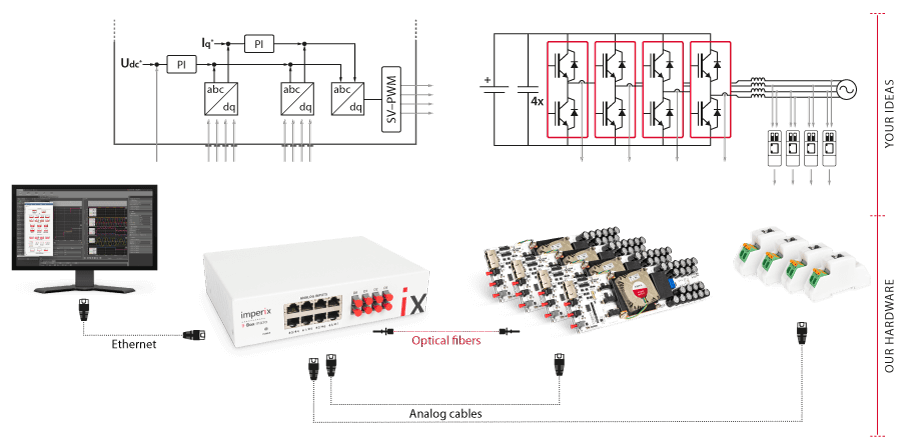
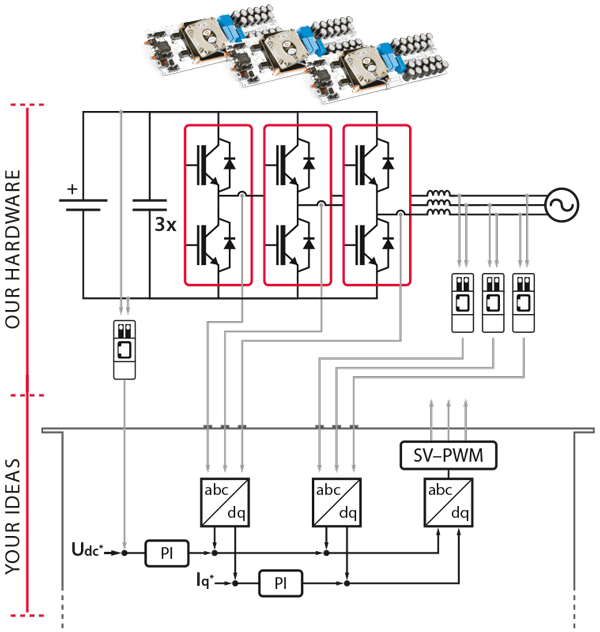
- Thanks to our plug-&-play power and control hardware, students can quickly set up complete systems.
- Students can focus on the converter control without the hassle of having to design their own circuits.
- Standardized hardware and accurate models enable working in a well-controlled environment, limiting the complexity.
SIMPLIFY TEACHING
Accelerate teaching material preparation
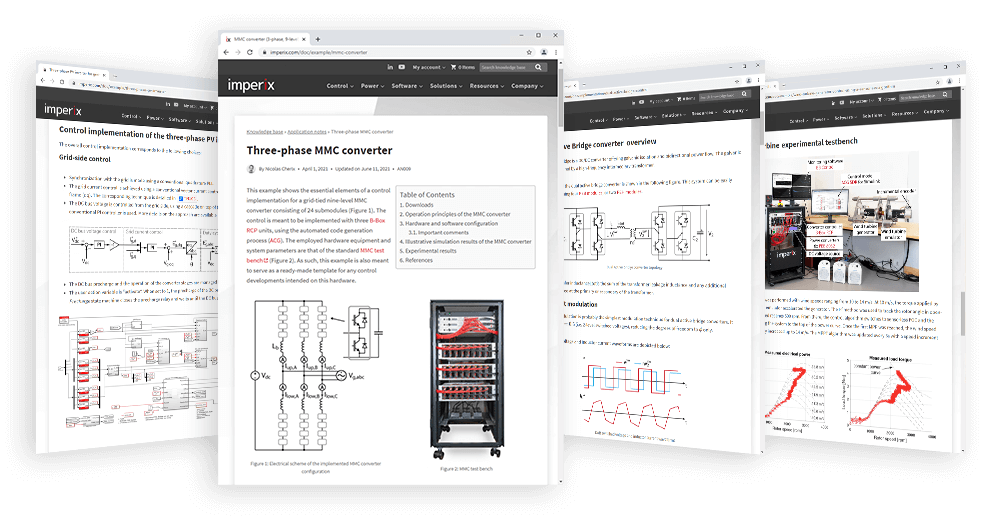

Start from the knowledge base
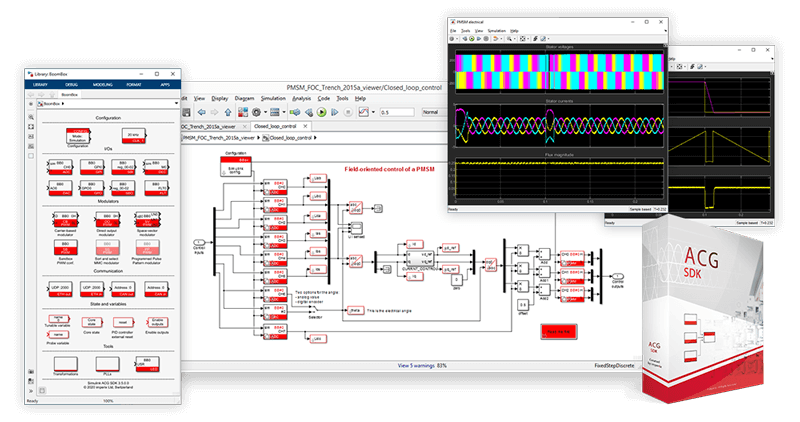

Run an offline simulation
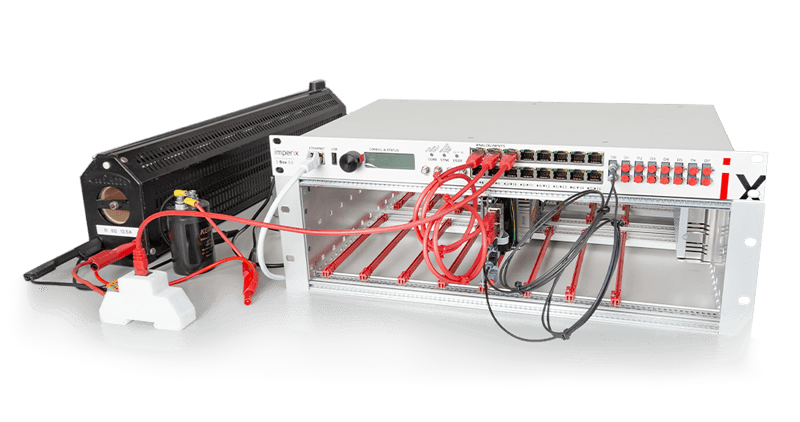

Build up an experimental setup
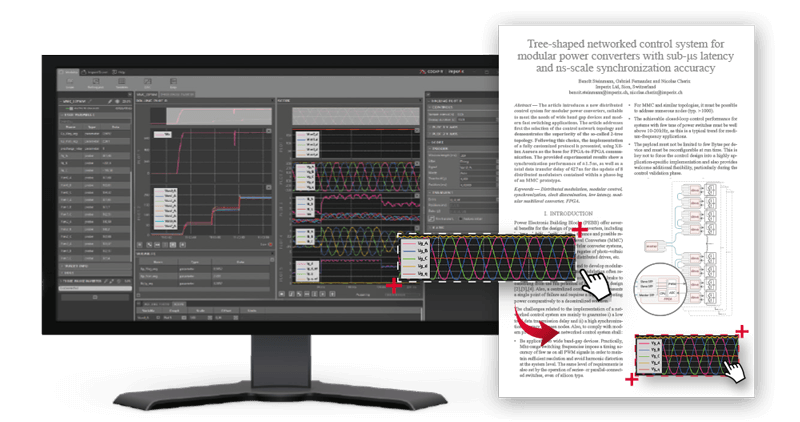

Generate code and export the results
Thanks to Automated Code Generation (ACG) SDK, one click is sufficient to jump from simulation to experimental testing. Then, using Cockpit, students can access, monitor, tune and export any variable in real time.
FROM THEORY, TO PRACTICE
From basic topologies…

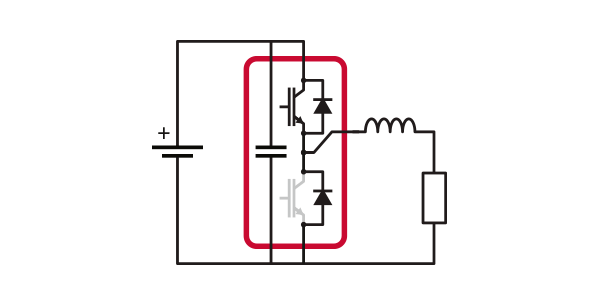

To real applications!
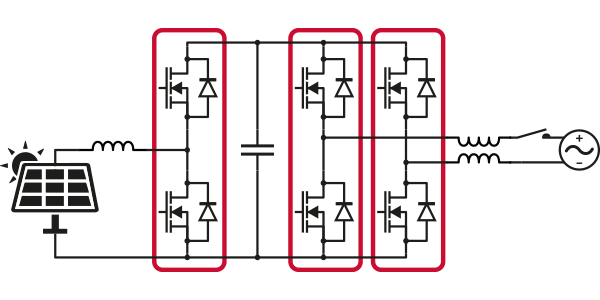
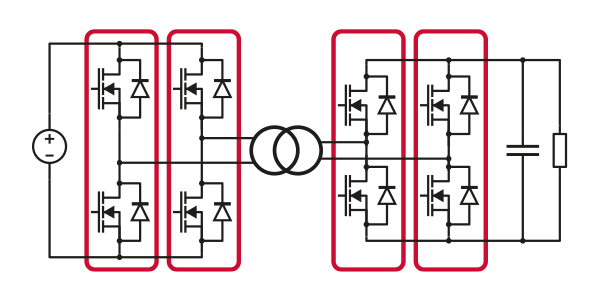
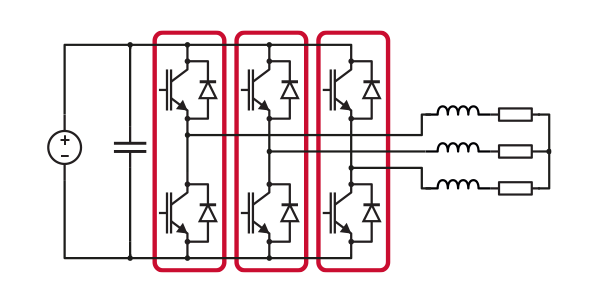

DON’T PLAY WITH SAFETY !
A multi-layered protection scheme
Imperix controllers embed three different layers of protection that are always present and force the user to acknowldege any issue before continuing operation.
1st layer: Software
Abnormal conditions can easily be detected in software. However, the reliability of software protections is limited to that of the strategy developed by the user.
2nd layer: Controller hardware
Imperix controllers feature programmable protections. This offers flexible thresholds that can be set in order to protect various pieces of equipment.
3rd layer: Power stage
All power modules possess on-board over-voltage, over-current and over-temperature thresholds, offering a last-resort protection, although not easily configurable.
SAVE SPACE, TIME… AND MONEY!
The kits are based on rack-mountable open chassis, facilitating the (re)arrangement of power modules.
Kit content
for 10 work stations
- 10x B-Box Micro controller
- 10x ACG SDK
- 10x open rack
- 40x PEB8038 modules
- 40x voltage sensors
- All needed cables
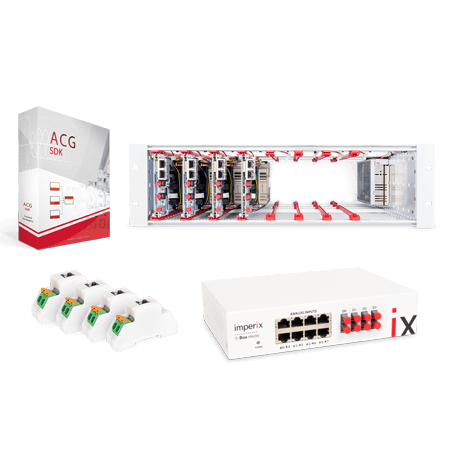
 | |
x10 TOTAL your price | |

Kit content
for 10 work stations
- 10x B-Box Micro controller
- 10x ACG SDK
- 10x open rack
- 40x PEB8038 modules
- 40x voltage sensors
- All needed cables
 | |
x10 TOTAL your price | |
